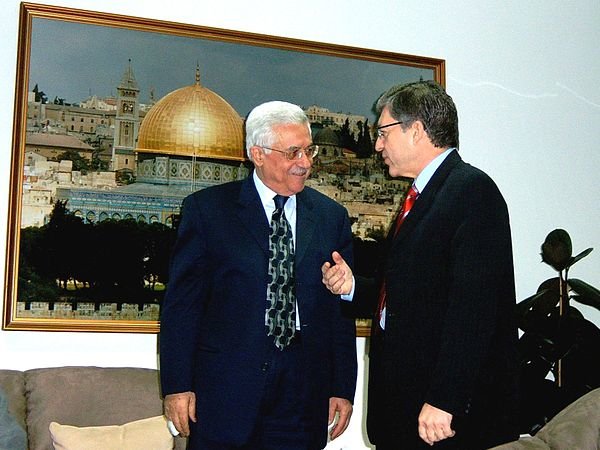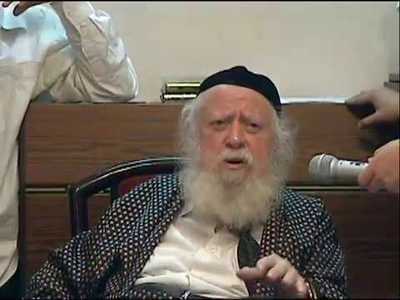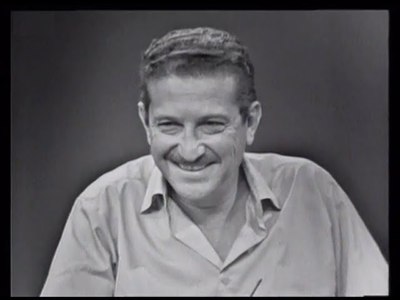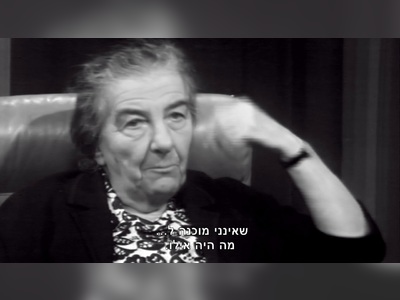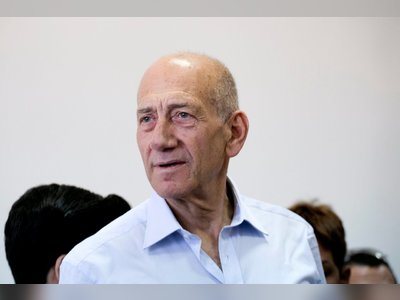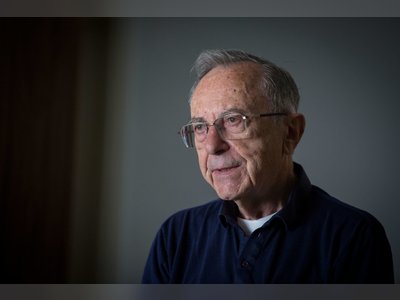Yossi Beilin: A Political and Business Figure in Israel
Yossi Beilin, born on June 12, 1948, is an Israeli politician and businessman. Throughout most of his political career, he was associated with the Labor Party, and he was a close associate of Shimon Peres. Beilin served as a member of the Knesset and a minister in the Israeli government. He also chaired the Meretz-Yachad party and holds a Ph.D. in political science.
Biography
Yossi Beilin was born in 1948 in Petah Tikva, Israel, and grew up in Tel Aviv-Jaffa in a liberal-leaning household. His parents, Zvi and Zehava Beilin, were Polish immigrants. During his bar mitzvah, he adopted a more observant lifestyle, although he did not wear a kippah. He studied at the Herzliya Gymnasium in Tel Aviv.
Beilin served in the Israel Defense Forces (IDF) as a lieutenant and participated in the Six-Day War in Sinai as part of Division 8. During the Yom Kippur War in 1973, he served as a reservist in the Golan Heights and, due to post-war emotional trauma, he eventually left his religious way of life.
From 1969 to 1979, Beilin worked as a journalist for the newspaper "Davar" while simultaneously studying at Tel Aviv University. He also served as the spokesperson for the Labor Party from 1977 to 1984. In 1981, he earned a Ph.D. in political science from Tel Aviv University, with a thesis titled "Coalitions Among Generations in Three Israeli Parties," under the guidance of Professor Yonatan Shapiro. After completing his doctorate, he taught at Tel Aviv University until his appointment as the government secretary in 1984.
Early Political Career
During Shimon Peres's tenure as prime minister from 1984 to 1986, Beilin served as the government secretary and was part of the "blazer" group, a close circle of Peres's confidants, which included figures like Nimrod Novik, Amnon Neubach, Israel Peli, and Uri Savir. After the rotation of power, when Peres assumed the role of Foreign Minister, Beilin was appointed as the director-general of the ministry. In this role, he worked to distance Israel from the apartheid regime in South Africa, with which Israel had warm relations.
In 1988, Beilin was first elected to the Knesset as a member of the Labor Party, along with other members of the "Gang of Eight," including Haim Ramon, Avraham Burg, and Amir Peretz. He served as the Deputy Finance Minister under Peres and famously remarked that Israel would have to learn to live with 6-7% unemployment.
In March 1990, he was one of the key planners of the government transition from the unity government to the Labor-led government, which later became known as the "dirty trick" according to Yitzhak Rabin. Rabin also referred to him as "Peres's poodle."
During the Labor Party's time in opposition, Beilin co-founded the Economic Cooperation Foundation (ECF) with Yair Hirschfeld and Ron Pundak, which played a significant role in shaping Israel's policies before the Labor Party's victory in the 1992 elections.
With the formation of Rabin's second government, Beilin was appointed Deputy Minister of Foreign Affairs, again under Peres. During this time, he initiated contacts between Hirschfeld, Pundak, and Palestinian representatives that eventually led to the official Oslo Accords.
These informal meetings with representatives of the Palestine Liberation Organization (PLO) aimed at achieving a diplomatic agreement. They began on January 20, 1993, following the cancellation of the law prohibiting any contact with the PLO.
The agreements reached during these encounters later found their way into official accords. In July 1995, Beilin was appointed Minister of Economy and Planning, working towards the closure of this ministry.
During this period, he, along with Mahmoud Abbas (Abu Mazen), formulated the "Beilin-Abu Mazen understandings" as a basis for a possible permanent settlement between Israel and a future Palestinian state.
Although the agreements were never signed, they provided a foundation for subsequent initiatives. The Geneva Initiative was one such proposal, an unofficial Israeli-Palestinian peace plan drafted by teams led by Yasser Abed Rabbo and Yossi Beilin, under the auspices and support of the Swiss government.
The document was finalized in 2003 and was based, according to its initiators, on the Clinton Parameters from December 2000. The initiative was not formally adopted by official authorities.
After the assassination of Yitzhak Rabin, Beilin served as a minister in Shimon Peres's government, primarily in the Prime Minister's Office. During this time, he also dealt with Israel's relations with Jewish communities worldwide and with the United States in particular.
He stirred controversy when he called for a reevaluation of the nature of these relationships and the financial contributions to Israel. In parallel, he proposed establishing a project that would enable every young Jewish person from outside Israel to visit Israel in an organized manner as a gift from the Jewish people. This initiative eventually led to the establishment of Taglit-Birthright Israel in 1999.
In June 1997, Beilin ran for the leadership of the Labor Party and finished second behind Ehud Barak, ahead of Shlomo Ben-Ami and Ephraim Sneh. During this period, he began advocating for a unilateral withdrawal of the Israel Defense Forces (IDF) from Lebanon, which was eventually implemented during Barak's tenure as Prime Minister.
In the Ministry of Justice and Transition to Meretz
In Barak's government, Beilin was appointed as the Minister of Justice, despite his lack of formal legal training. He clashed with Supreme Court President Aharon Barak in a way that led other justice ministers to avoid him. Beilin was even "caught" masquerading as a random observer, wearing dark sunglasses, in the ethics complaint room to personally monitor the proceedings.
Subsequently, Beilin resigned from the Knesset to make way for Eli Ben-Menachem on the party list. Following the departure of the One Israel and Shas parties from Barak's government, Beilin was also assigned the Ministry of Religious Affairs and advocated for its closure. The ministry was eventually disbanded in Sharon's second government but was later re-established by the subsequent government.
During the collapse of Barak's government, Beilin was one of the prominent figures opposing the Labor Party's entry into Sharon's government. In June 2002, he founded the Shahar (Peace, Education, Welfare) movement.
After being placed in an unrealistic position on the Labor Party's list for the Sixteenth Knesset elections, Beilin left the party along with Yael Dayan to join the Meretz-Yachad-Democratic Choice list. Meretz placed Beilin, who had joined the party after the internal elections, at number 11 on the joint list, which did not secure enough votes to enter the Knesset.
In 2003, following a protracted international mediation process, a group of politicians and diplomats, including Yossi Beilin and Abed Rabbo, prepared the Geneva Initiative, a draft agreement for the resolution of the Israeli-Palestinian conflict. The initiative, which proposed a two-state solution to the conflict, received mixed reactions from both the Israeli and Palestinian governments.
Post-Political Career
After his departure from the Knesset, Beilin has continued to be active in public life and international diplomacy. He served as the Chairman of the Meretz party from 2004 to 2008. Following his time in the Knesset, Beilin has been involved in various peace initiatives and civil society organizations.
Beilin has also been a prolific writer, authoring several books and numerous articles on Israeli politics, peace negotiations, and the Israeli-Palestinian conflict.
Business Ventures
In addition to his political career, Yossi Beilin has ventured into the business world. He has been involved in various business enterprises, including serving on the board of directors for several companies. Beilin's business activities have included positions in technology and venture capital companies.
Yossi Beilin remains a prominent figure in Israel's political and business landscape, known for his contributions to peace efforts in the Middle East and his diverse career spanning politics, diplomacy, and entrepreneurship.
Please note that my knowledge is based on information available up to September 2021, and there may have been developments in Yossi Beilin's life or career since then.
- יוסי בייליןhe.wikipedia.org

